
Polymath Robotics
Overview of Polymath Robotics
Polymath Robotics is revolutionizing the world of off-highway vehicles with its cutting-edge autonomy and safety systems. Designed to simplify the complex process of integrating autonomous capabilities into rugged, real-world machines, this innovative platform empowers businesses to automate fleets efficiently and securely. Whether you're managing construction equipment, agricultural machinery, or defense vehicles, Polymath Robotics offers a software-first solution that accelerates development while reducing costs.
What is Polymath Robotics?
At its core, Polymath Robotics provides modular autonomy systems tailored for off-highway environments. Unlike traditional approaches that demand heavy customization and extensive hardware overhauls, Polymath focuses on flexibility and scalability. The company builds systems trusted by original equipment manufacturers (OEMs), fleet operators, and defense leaders, enabling them to unlock the full potential of autonomous operations. By prioritizing a streamlined, software-centric model, Polymath makes it easier to deploy autonomy without the usual headaches of high development timelines or budget overruns.
These systems are built to handle the unpredictable nature of off-highway settings, where vehicles navigate challenging terrains like construction sites, mines, or agricultural fields. The emphasis on safety ensures that automation enhances rather than compromises operational reliability, making it a go-to choice for industries pushing toward smarter, more sustainable fleets.
How Does Polymath Robotics Work?
Polymath Robotics operates on a modular architecture that allows users to select and integrate only the autonomy features required for their specific needs. This building-block approach means you can start small and scale up as your program evolves, avoiding the pitfalls of monolithic systems that lock you into rigid configurations.
Key to its functionality is the sensor-agnostic design. The platform works seamlessly with a wide array of sensors—lidar, cameras, radar, or others—allowing hyper-customization to match your fleet's unique environment. This adaptability ensures that whether your vehicles operate in dusty quarries or uneven farmlands, the system can perceive and respond accurately without needing sensor-specific reprogramming.
Vehicle agnosticism is another cornerstone. Polymath integrates with any off-highway machine, regardless of size, shape, or manufacturer. From compact utility vehicles to massive haulers, the system adapts to diverse hardware setups, streamlining retrofits and new builds alike.
A standout feature is the onboard compute capability. By processing autonomy intelligence directly on the vehicle, Polymath eliminates the need for costly data streaming to remote control centers. This reduces networking expenses, minimizes latency, and enhances privacy—critical for defense and industrial applications where real-time decisions can make or break operations.
Under the hood, the technology leverages advanced algorithms for vehicle dynamics, perception, and decision-making. Users can explore autonomy modules through the platform's resources, such as API documentation, which facilitates easy integration into existing workflows. The result? A robust system that handles perception, planning, and control with minimal field service interventions.
How to Use Polymath Robotics?
Getting started with Polymath is straightforward, thanks to its user-friendly, developer-focused tools. Begin by scheduling a consultation with an expert via the company's website to assess your fleet's needs. From there, select the relevant autonomy modules—such as obstacle avoidance, path planning, or emergency braking—and configure them using the intuitive API.
Installation is notably simple, often requiring minimal hardware additions beyond your existing sensors. The software deploys on the vehicle's onboard computer, integrating with your machine's control systems. For testing, leverage the provided resources like blogs and podcasts for best practices, or dive into API docs for custom implementations.
Once deployed, monitor performance through lightweight diagnostics that require low bandwidth. Updates and expansions are modular, so adding features like advanced safety protocols doesn't disrupt current operations. For teams new to autonomy, Polymath's collaborative approach includes guidance on scaling from pilot projects to full fleet automation.
Why Choose Polymath Robotics?
In an industry where autonomy projects often falter due to complexity and expense, Polymath stands out for its practicality. Testimonials highlight its ease of installation and low maintenance needs. As Brett Rogers, VP of Advanced Solutions at ConGlobal, notes, 'Our collaboration with Polymath Robotics has been a critical step forward in our journey to enhance safety, efficiency, and sustainability in logistics.'
Similarly, Justin Mallory, Executive Director at BIA5, praises the system's mature vehicle dynamics and minimal network overhead: 'Polymath’s system stands out for its ease of installation, mature vehicle dynamics, minimal field service deployments, and lowest network bandwidth overhead.' These real-world endorsements underscore the platform's reliability in demanding scenarios.
Compared to competitors, Polymath's cost-effectiveness shines through its avoidance of expensive infrastructure. By keeping everything onboard, it slashes data transfer costs and boosts responsiveness. Plus, its modular nature future-proofs your investment, aligning with evolving standards in autonomous vehicle technology.
From an SEO perspective, if you're searching for 'autonomy systems for off-highway vehicles' or 'modular robotics for fleet automation,' Polymath delivers proven value. It addresses key pain points like integration challenges and safety compliance, making it a smart pick for forward-thinking operations.
Who is Polymath Robotics For?
This platform is ideal for a range of users in the off-highway sector:
- OEMs and Manufacturers: Streamline R&D for autonomous features in new vehicle lines.
- Fleet Operators: Automate repetitive tasks in logistics, mining, or agriculture to cut labor costs and improve safety.
- Defense and Security Teams: Deploy reliable systems in high-stakes environments with minimal downtime.
- Developers and Engineers: Leverage APIs for custom autonomy solutions without starting from scratch.
If your operations involve heavy machinery in uncontrolled environments, Polymath empowers you to achieve Level 3+ autonomy—where vehicles handle most tasks independently under supervision—faster than ever.
Key Features and Practical Value
Polymath's offerings pack practical benefits into every module:
- Sensor and Vehicle Flexibility: Customize without constraints, reducing adaptation time by up to 50%.
- Onboard Processing: Lower operational costs by avoiding cloud dependencies; ideal for remote sites with poor connectivity.
- Modular Scalability: Pay only for what you use, with easy upgrades as needs grow.
- Safety-First Design: Advanced dynamics ensure compliance with industry standards, minimizing accidents in hazardous areas.
The practical value extends to sustainability: Automated fleets optimize routes and reduce idle time, cutting fuel use and emissions. For businesses eyeing ROI, early adopters report faster project timelines and fewer service calls, translating to significant savings.
In terms of use cases, imagine automating a mining haul truck fleet to operate 24/7 safely, or equipping agricultural tractors for precision planting without human oversight. Polymath makes these scenarios accessible, bridging the gap between concept and deployment.
Best Ways to Get Started with Off-Highway Autonomy
To maximize Polymath's potential:
- Assess Your Fleet: Identify high-value automation targets, like repetitive loading tasks.
- Integrate Modules: Use API docs to plug in perception and control features.
- Test in Stages: Pilot on one vehicle before scaling.
- Monitor and Optimize: Rely on low-bandwidth tools for ongoing improvements.
By following this path, you'll harness the best of autonomous technology for off-highway vehicles, driving efficiency and innovation.
Polymath Robotics isn't just a tool—it's a partner in powering the future of autonomous fleets. With its focus on simplicity and robustness, it's poised to transform how industries tackle off-highway challenges.
Best Alternative Tools to "Polymath Robotics"
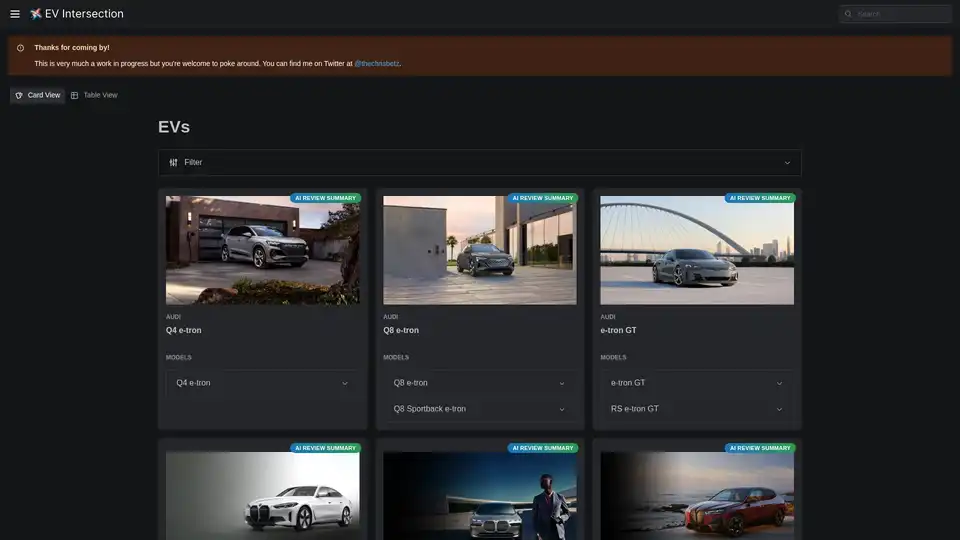
EV Intersection helps you discover the ideal electric vehicle using AI-powered review summaries. Browse top EV models from Audi, BMW, Tesla, and more. Find your next EV today!
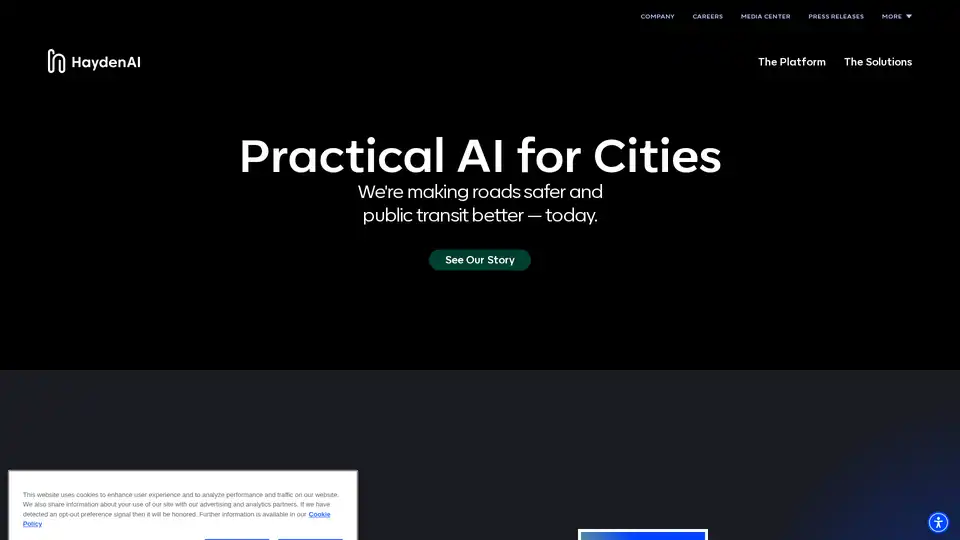
Hayden AI provides AI-powered solutions for cities to improve transit safety and efficiency. Their technology uses vehicle-mounted cameras and vision AI to detect parking and traffic violations in real-time, helping to make streets safer and transit more reliable.
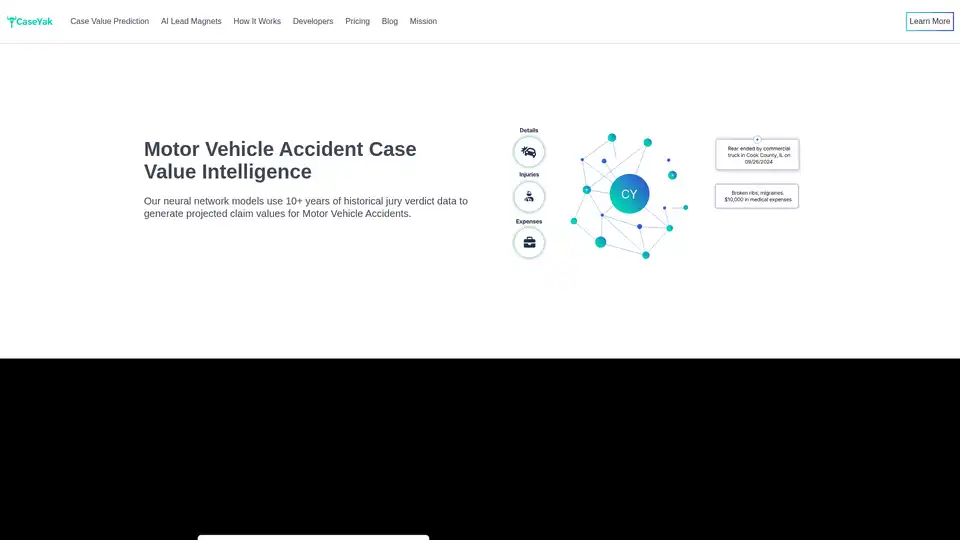
CaseYak uses AI to predict motor vehicle accident claim values, offering AI Lead Magnets for law firms. It captures accident details via natural conversation and generates estimated case values, transforming websites into lead generation machines.
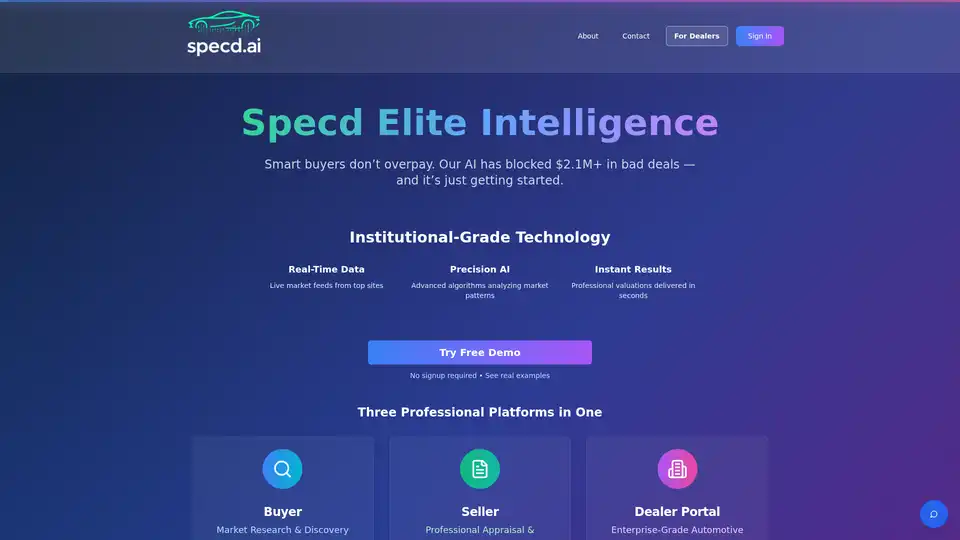
Specd is an AI-powered platform providing professional automotive valuations using real-time market data and advanced algorithms. It offers solutions for buyers, sellers, and dealers to make informed decisions.
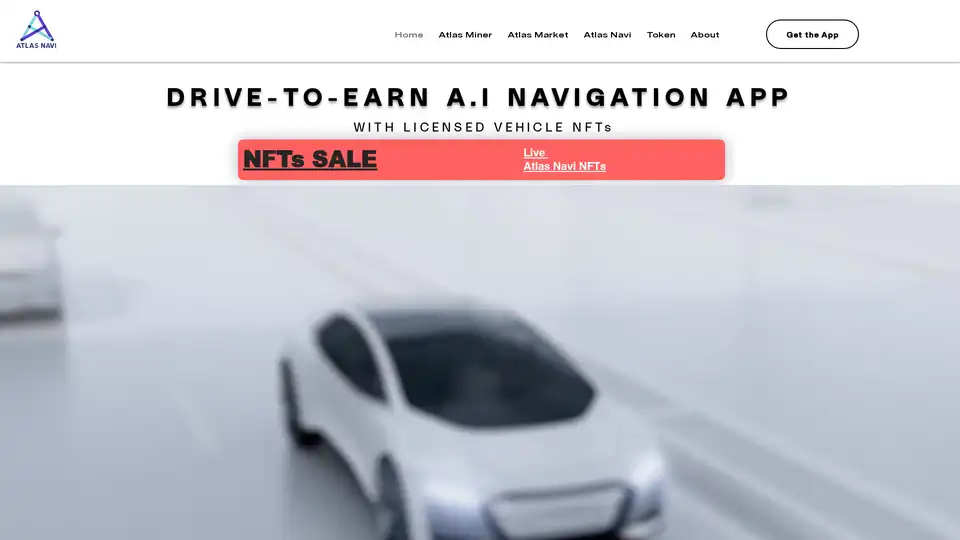
Atlas Navi is an AI-powered navigation app using machine learning & blockchain, offering real-time traffic updates, drive-to-earn rewards with vehicle NFTs. Outsmart traffic & earn!
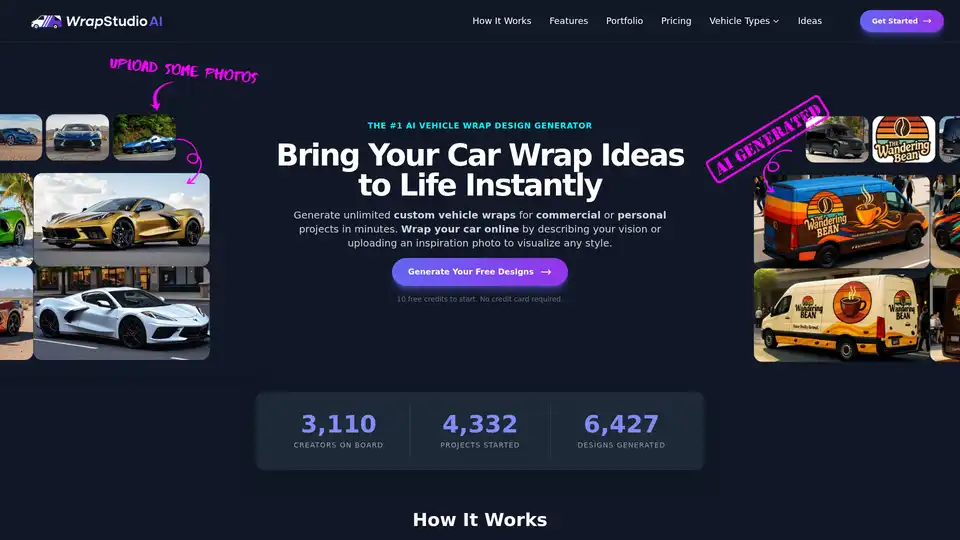
Generate professional custom car wraps in minutes with AI technology. Create commercial vehicle wraps or unique personal styles with 3D mockups and advanced refinement tools.

Call2Action.ai revolutionizes driver hiring with AI-driven interviews, screening, and onboarding. Hire qualified drivers faster and cheaper while integrating seamlessly with your ATS for efficient fleet expansion.
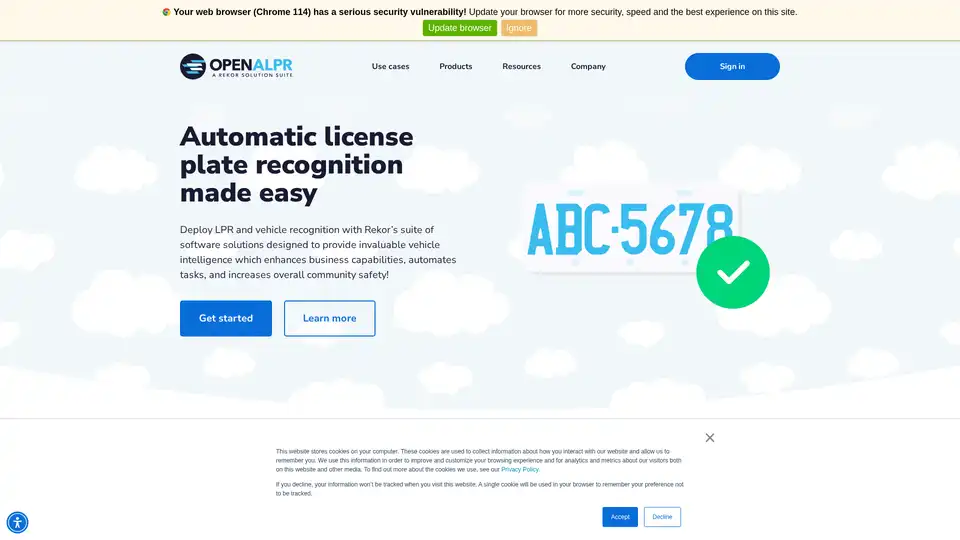
Discover OpenALPR by Rekor: AI-driven license plate and vehicle recognition for IP cameras. Enhance security, automate tasks, and gain vehicle insights with high accuracy and easy setup.

Kick automates bookkeeping for entrepreneurs, offering expense tracking, financial insights, and tax-ready financials. Free to use and designed to save time and money.

Treads is an AI-powered tire subscription app simplifying car maintenance. Get new tires, roadside assistance & vehicle safety alerts. Download Treads today!
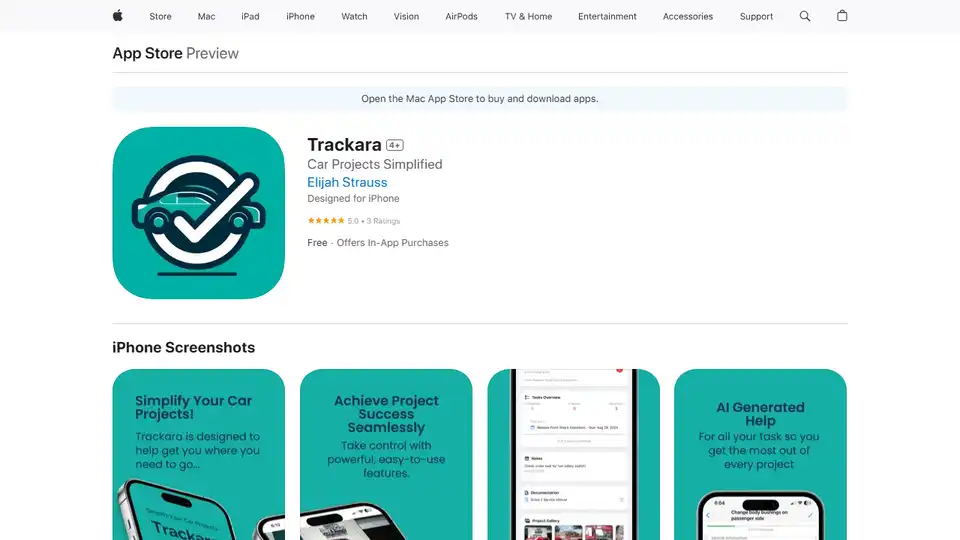
Trackara is an all-in-one car project management tool with AI assistance, OBD2 diagnostics, and custom reminders. Manage unlimited projects and keep your vehicle running smoothly.
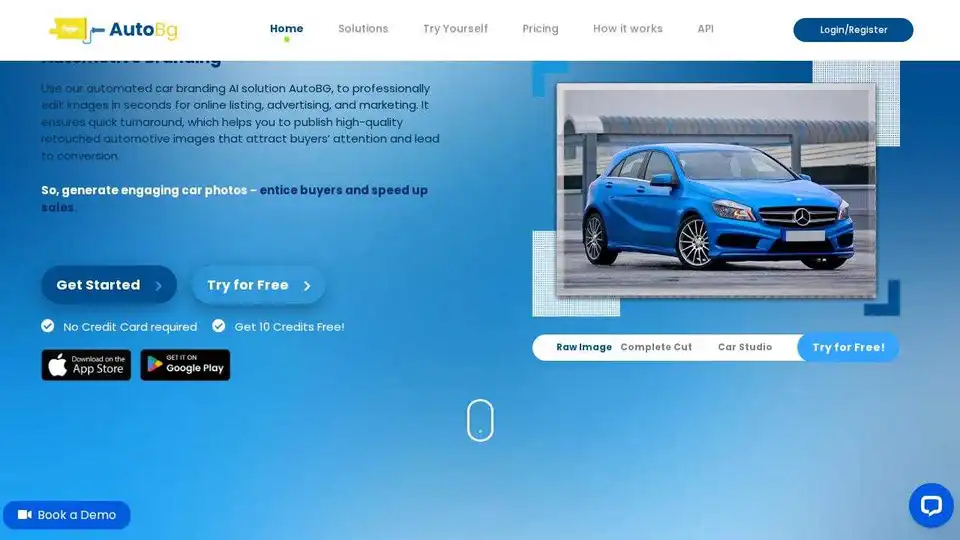
AutoBG is an AI-powered solution for car dealers to automatically remove and replace vehicle image backgrounds, enhance photos, and streamline online listings. Try it free!

Get an accurate, instant car valuation with just one photo. Caralyze uses advanced AI to analyze your vehicle's make, model, condition and value in seconds.

KommuAssist 1s: AI-Powered Level 2 Autonomous Driving Solution.Lane Keep,Adaptive Cruise Control,Stop and Go.
